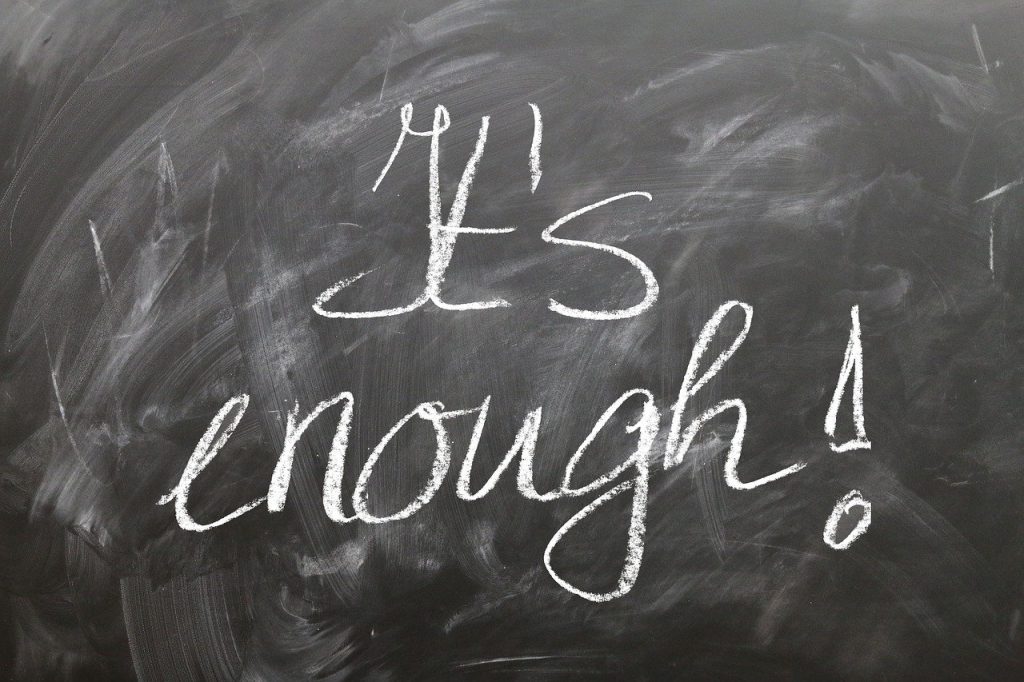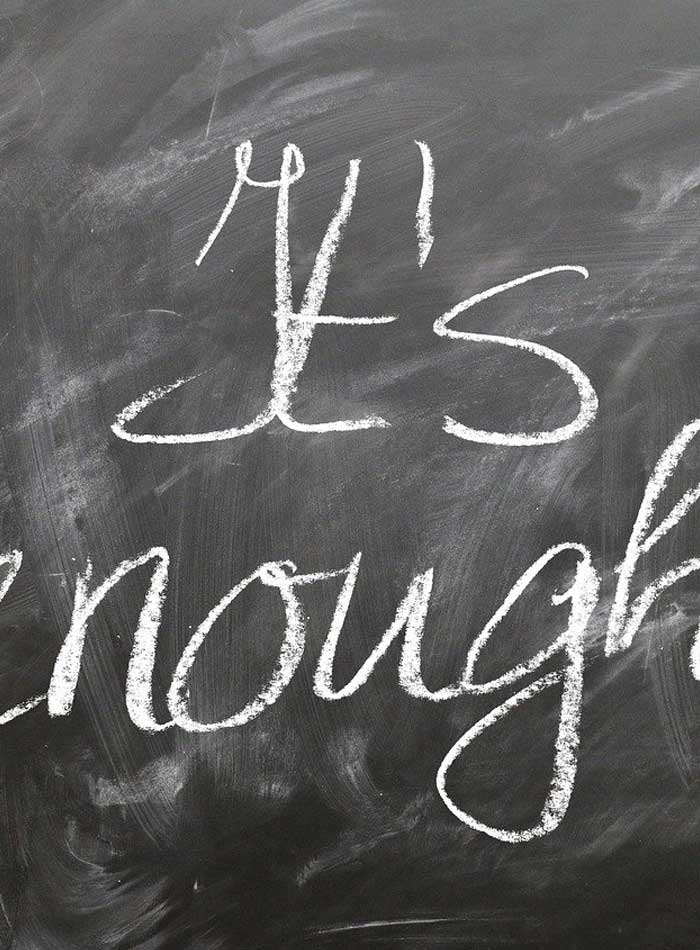I was a panelist during an event for Women In STEM in the week of International women’s day. During the Q&A session, and after a series of presentations, a delegate asked the question “can someone have it all?”. This is because most of the presenters shared how they lost something to gain something. You may recall my post on choosing your pain. Many decisions we make in this life are usually at the expense of something else. It is therefore important to be conscious of the problems you are selecting when you make some choices.

Back to can someone have it all then? Perhaps a good supporting question to this would be “how much is your all?” or “how much is enough?”. Many of us get caught up in the rat race, racing for the corner office to earn more money and become more powerful. Some want to buy or build a bigger house and buy a bigger car. We want to gain more wealth and become financially independent. We also want to be independent enough to be able to spend more time with our loved ones. Many noble reasons and causes. But how will you know when you’ve received enough?
Perhaps you need to pose and ask yourself, 'what is your all? Do you need a bigger house or just a comfortable one? Do you really need the latest vehicle model or just a convenient and reliable vehicle to move you around? Do you really need a mansion that will be empty in a few years when the children leave home and will become burdensome even to keep it clean?
A story is told of a highflying businessman who, on doctors’ orders, went on a holiday to a small coastal town, where he bumped into a local fisherman that spent a few hours a day fishing and once he had captured enough fish to support his family and give a few to friends, he called it a day. He asked him what he does with the rest of the day, to which the fisherman told him that he sleeps late, plays with his children, takes a siesta with his wife, and strolls into the village each evening where he sips wine and plays guitar with his friends.
The executive told him that if he spent a little more time fishing, he would catch a lot of fish and in time would build a large empire for himself after buying a bigger boat and even opening his cannery. As a result, he would even move into a larger city and run to expand his business. The fisherman asked “how long would this take?” to which he was told it possibly will take about 15 - 20 years. “And then what?” he asked. “You can eventually sell your company stock to the public and become very rich. “And then what?”
“Then you will retire and move to a small coastal town where you would fish a little, play with your children, take a siesta with your wife, take a stroll in the village each evening, sip some wine, and play guitar with your friends…” (paraphrased from Tim Ferris book, The 4-Hour workweek).
How much is your enough? And how will you know when you have it? We’ve seen wealthy people amass wealth, and buy large properties, only for them to lose their families for lack of relationship with them, they get old and lonely and their very palatial homes become difficult to live in. We’ve seen property amerced for children by parents go wasted as the children either don’t value the sweat that was put in for this wealth to be accumulated, or the way it was accumulated was at the cost of a relationship or time with them.
The story of Steve Jobs is told of how on his deathbed, his one wish was that he could have spent more time with his family. Did he have it all? Perhaps he didn’t know where his ‘enough’ line was, perhaps he had skewed priorities, perhaps…
I think we need to ask ourselves, how much is enough? What is your all? It is unique to you and should not be measured by society. Here are a few ideas on how to determine your enough;
- What do you value the most? Identify what your most important thing in life is. Is it being a good parent, being a good friend, is it to ease world hunger or disease, is it to help the needy?
- What is keeping you from pursuing your values?
- What small incremental changes do you need to make?
- What do you need to let go of? Either incrementally or at once?
- If money was not the problem what would you spend your days doing, every day?
Many look forward to retirement imagining that they’ll be able to make up for lost time and chances to do the things they love. I trust you’ve seen the irony in life where, when you have a lot of energy, you usually don’t have the money. when you have enough money, you never have enough time, children are being born and you’re building your families. Then when you finally have enough money and enough time, you don’t have the energy and sometimes even the health.
So, back to the question, can you have it all? I think you can. Just define your own enough!

